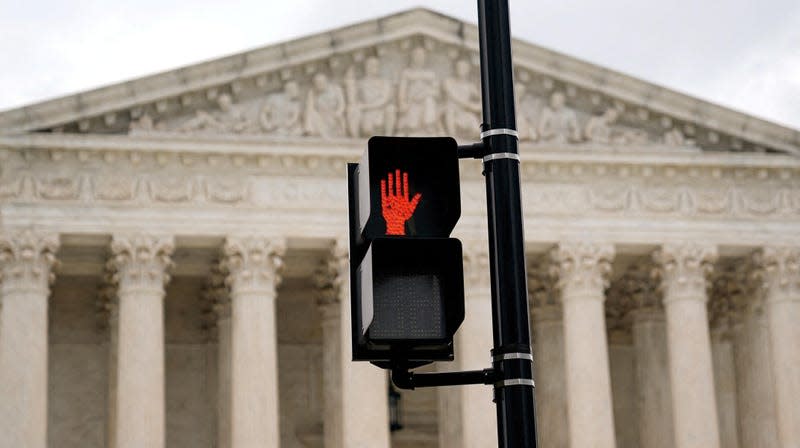What happens if the SEC's Coinbase lawsuit lands at the Supreme Court?

The US Securities and Exchange Commission’s lawsuit against cryptocurrency exchange Coinbase has the potential to significantly diminish either the crypto industry’s presence in the US, or the power of the SEC.
“It’s a risk on the SEC’s part,” Todd Phillips, a former FDIC lawyer who is now a fellow at the Roosevelt Institute, told Quartz. “I could imagine this Supreme Court taking away authority from the SEC by refining what an investment contract is.”
Read more
Currently, the SEC uses the Howey test to determine if something is a security or not. The criteria emerged from the 1946 case SEC v. W.J. Howey Co., in which the Supreme Court ruled that the Securities Act of 1933 and the Securities Exchange Act of 1934 meant that US law defines a security as an investment of money in a common enterprise, with the expectation of profit to be derived from the efforts of others.
Crypto vs. the SEC
The SEC’s lawsuit is a bold gamble on what is and isn’t an investment contract.
The case hinges on whether Coinbase is selling unregistered securities, but it also focuses on how the company allowed users on its platform to participate in decentralized financial exchanges.
Coinbase, according to the SEC, allowed customers to profit from investments in crypto tokens that should have been registered as securities, akin to a traditional stockbroker caught selling its customers assets that haven’t been approved by the financial regulator.
If the courts agree with the SEC’s assessment that these tokens are in fact securities, it could make trading them on US exchanges impossible.
If the Supreme Court decides that the SEC is wrong about what constitutes a security, that ruling could affect many other kinds of assets in addition to crypto, leaving investors less protected in other parts of capital markets, Phillips said.
Democrats are already likely to oppose a crypto regulatory bill from representatives Patrick McHenry, a Republican from North Carolina, and Bennie Thompson, a Mississippi Democrat, for not being strong enough because it would allow cryptocurrencies to escape SEC regulation once they’re decentralized enough. If SCOTUS guts the SEC’s enforcement power, then Democrats may support the bill in lieu of no SEC oversight for crypto.
The case ought to be straightforward because it deals with basic statutory interpretation and not constitutional issues, but it’s difficult to tell what the partisan justices on today’s Supreme Court will do, according to Tyler Gellasch, president of Healthy Markets Association, a Washington, D.C.–based think tank.
“It’s a reasonable thing for the industry to argue that the SEC let all this stuff go for years, and had plenty of opportunities to stop it,” Gellasch told Quartz. “But traditionally, that’s not how laws work. You might be able to speed every day on the same road for 10 years, and all of a sudden a cop pulls you over. You can say, ‘I’ve been speeding on this road for 10 years!’ but it’s not a great defense.”
More from Quartz
Sign up for Quartz's Newsletter. For the latest news, Facebook, Twitter and Instagram.

